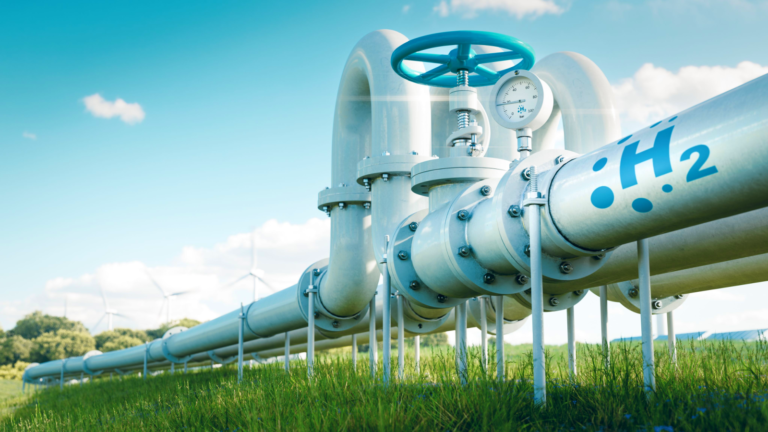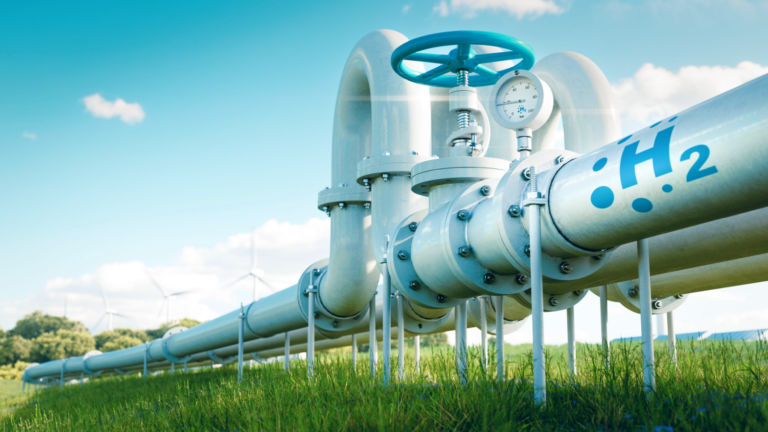Hydrogen stocks will feature heavily in the low carbon economies of the future but what should investors expect immediately?

Source: petrmalinak / Shutterstock
Investors are generally aware of an emerging opportunity in hydrogen stocks but remain curious about what kinds of returns to expect. The answer of course depends upon the individual stock into which an investor directs their capital. More broadly though, the market could grow at roughly 8% annually between this year and 2030.
Hydrogen and hydrogen-based fuels can play an integral role in lowering carbon emissions. That goal continues to be important across industry and to the economy overall. Hydrogen fuel cells are particularly important in that conversation. They have applicability within the automotive sector which has piqued investor interest.
The broader clean energy narrative is as important if not more so. Regardless, hydrogen stocks continue to draw investor interest. Let’s look at the projected growth for an investment in three hydrogen companies below.
Linde (LIN)

Source: nitpicker / Shutterstock.com
Linde (NYSE:LIN) is a global leader in the industrial gases sector and one of the more reliable hydrogen stocks available to investors.
The company continues to progress in its hydrogen business and is one of the pioneers in that area. The company inaugurated the world’s first hydrogen refueling systems for trains in late 2022. That refueling system is one example of the potential of hydrogen within the broader economy.
Investors should also note that hydrogen is simply one part of Linde’s business overall. That business is currently flat overall from a top line perspective but the company did manage to increase income by 8%.
So, how much should investors expect Lind to grow in the next year or so? Shares are forecasted to grow between 9% to 25% in the consensus and best-case scenarios. Additionally, LIN shares include a dividend yielding 1.3% that kicks up returns modestly. The worst-case scenario is a slight decline but one that is more than covered by the dividend’s returns.
BP (BP)

Source: FotograFFF / Shutterstock.com
BP (NYSE:BP), like most other European energy firms, was quick to invest in the green energy transition and away from oil revenues.
A big part of that transition has focused on hydrogen growth. BP grew its hydrogen pipeline by more than 60% last year, from 1.8 million tons annually to 2.9 million. The company continues to invest in blue hydrogen primarily. blue hydrogen is that which is produced from natural gas. The company continues to await news relating to U.S. policy before it gives further updates on its green hydrogen expectations. Green hydrogen is that which is produced from wind, water, and solar.
Investors have pushed back heavily when it comes to BP’s green aspirations. The truth is that shareholders have grown tired of what they believe to be an overly green focus. It’s hard to argue with their gripes given the company’s poor performance of late, especially vis-à-vis more heavily oil-oriented U.S. firms like Shell (NYSE:SHEL). Analysts expect share prices to rise substantially moving forward but I wouldn’t be so sure given how poorly BP has executed lately.
Air Products and Chemicals (APD)

Source: Bjoern Wylezich / Shutterstock
Air Products and Chemicals (NYSE:APD) is a very similar investment to Linde, above. Both firms produce industrial gases and both of their respective stocks are similarly reliable. For Air Products and Chemicals, the base case suggests roughly 8.7% returns over the coming year. However, that doesn’t include a dividend yielding 2.8%, making Air Products and Chemicals arguably the more attractive of the two.
Air Products and Chemicals’ Sales are also stagnant at the moment. However, the company managed to increase earnings by 30% during the most recent quarter. For that reason I would give the edge to APD for investors who are considering an either or analysis between it and Linde.
Further, Air Products and Chemicals is the largest hydrogen supplier globally. The company has invested $15 billion in capital commitments by 2027 into low carbon hydrogen projects. It should be evident from this analysis that APD shares are very reliable and also expose investors to future growth in the hydrogen economy overall.
On the date of publication, Alex Sirois did not have (either directly or indirectly) any positions in the securities mentioned in this article. The opinions expressed in this article are those of the writer, subject to the InvestorPlace.com Publishing Guidelines.









